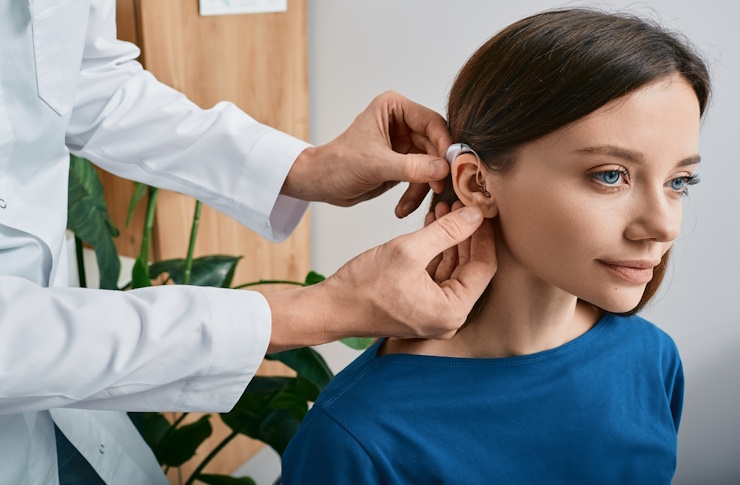Understanding and Managing Tinnitus: Treatments and Coping Strategies
Tinnitus, often described as a ringing or buzzing in the ears, affects millions of people worldwide. This persistent sound, which can range from a mild annoyance to a debilitating condition, has no single cure. However, various treatments and management strategies can help individuals cope with tinnitus and improve their quality of life. This article explores the nature of tinnitus, its potential causes, and the most effective approaches to treatment and management.

-
Exposure to loud noises
-
Age-related hearing loss
-
Earwax blockage
-
Head or neck injuries
-
Cardiovascular problems
-
Certain medications
Understanding the root cause of tinnitus is crucial in determining the most appropriate treatment approach.
How can medical treatments help manage tinnitus?
While there’s no cure for tinnitus, several medical treatments can help manage its symptoms:
-
Hearing aids: For those with hearing loss-related tinnitus, hearing aids can amplify external sounds, making the tinnitus less noticeable.
-
Sound therapy: This involves using external noise to alter the perception of or reaction to tinnitus. Devices like white noise machines or smartphone apps can be helpful.
-
Cognitive Behavioral Therapy (CBT): This psychological approach helps change the way a person thinks about and responds to tinnitus, reducing its impact on daily life.
-
Tinnitus Retraining Therapy (TRT): This combines sound therapy with educational counseling to help the brain reclassify tinnitus as an unimportant sound that can be ignored.
-
Medications: While no drug specifically treats tinnitus, some medications may help reduce its severity or complications, particularly if tinnitus is linked to underlying conditions like depression or anxiety.
What lifestyle changes can improve tinnitus symptoms?
In addition to medical treatments, certain lifestyle modifications can significantly impact tinnitus management:
-
Stress reduction: Stress can exacerbate tinnitus, so techniques like meditation, yoga, or deep breathing exercises may help.
-
Limiting caffeine and alcohol: These substances can affect blood flow and may worsen tinnitus symptoms in some individuals.
-
Regular exercise: Physical activity can improve blood flow and reduce stress, potentially alleviating tinnitus symptoms.
-
Adequate sleep: Good sleep hygiene can help manage tinnitus, as fatigue often worsens symptoms.
-
Avoiding loud noises: Protecting your ears from further damage is crucial in managing tinnitus and preventing its progression.
Are there any alternative therapies for tinnitus relief?
While scientific evidence is limited, some people find relief through alternative therapies:
-
Acupuncture: Some studies suggest acupuncture may help reduce tinnitus symptoms, though more research is needed.
-
Herbal supplements: Ginkgo biloba and other herbs have been studied for tinnitus relief, but results are inconclusive.
-
Hypnosis: This technique may help some individuals manage their response to tinnitus.
-
Biofeedback: This relaxation technique helps control certain bodily processes and may reduce tinnitus-related stress.
It’s important to consult with a healthcare professional before trying any alternative treatments, as they may interact with other medications or have unintended side effects.
What professional services are available for tinnitus management?
Several healthcare professionals specialize in tinnitus management and can offer comprehensive treatment plans:
| Provider Type | Services Offered | Key Features/Benefits |
|---|---|---|
| Audiologists | Hearing tests, tinnitus assessment, hearing aid fitting | Specialized in diagnosing and treating hearing disorders |
| ENT Doctors | Medical evaluation, treatment of underlying conditions | Can address physical causes of tinnitus |
| Psychologists | Cognitive Behavioral Therapy, stress management | Help with emotional and psychological aspects of tinnitus |
| Tinnitus Clinics | Comprehensive tinnitus programs | Multidisciplinary approach to tinnitus management |
| Neurologists | Brain and nerve-related evaluations | Can help if tinnitus is related to neurological issues |
How can individuals cope with the emotional impact of tinnitus?
Living with tinnitus can be emotionally challenging. Many individuals experience frustration, anxiety, and even depression. Coping strategies include:
-
Joining support groups: Connecting with others who have tinnitus can provide emotional support and practical tips.
-
Practicing mindfulness: This can help individuals accept and adapt to the presence of tinnitus.
-
Engaging in enjoyable activities: Keeping busy with hobbies and interests can help distract from tinnitus.
-
Seeking professional mental health support: Therapists can provide strategies to manage the emotional toll of chronic tinnitus.
-
Education: Learning about tinnitus can help individuals feel more in control and less anxious about their condition.
While tinnitus can be a challenging condition to live with, a combination of medical treatments, lifestyle changes, and coping strategies can significantly improve quality of life for those affected. It’s important to work closely with healthcare professionals to develop a personalized management plan that addresses both the physical and emotional aspects of tinnitus. With patience and persistence, many individuals find effective ways to manage their symptoms and reduce the impact of tinnitus on their daily lives.
This article is for informational purposes only and should not be considered medical advice. Please consult a qualified healthcare professional for personalized guidance and treatment.






